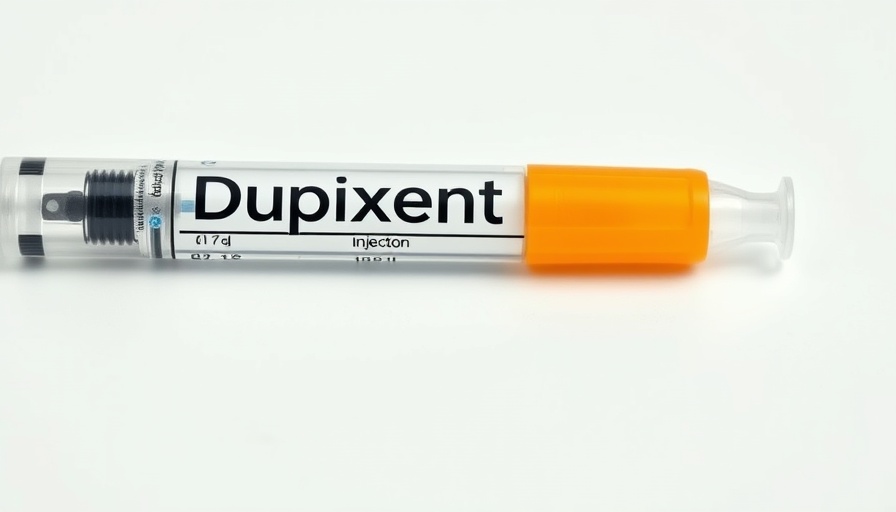
New Hope for Those Suffering from Chronic Spontaneous Urticaria
In a significant advancement for patients battling chronic spontaneous urticaria (CSU), the U.S. Food and Drug Administration (FDA) has approved dupilumab for those aged 12 years and older who continue to experience symptoms even with H1 antihistamine treatment. This approval comes amidst growing recognition of CSU's impact on quality of life and highlights the pressing need for effective treatments in this area.
Understanding Chronic Spontaneous Urticaria
Chronic spontaneous urticaria is characterized by recurrent hives and can be debilitating for those affected. It is estimated that around 1% of the U.S. population suffers from this condition, often experiencing relentless itching and discomfort. Many patients have previously relied on antihistamines, but as noted by Dr. Adam Friedman from George Washington University, the inadequacy of these treatments has left a substantial gap in care.
A Closer Look at Dupilumab's Efficacy
Dupilumab, also known as Dupixent, has been previously approved for various allergic conditions, including atopic dermatitis and asthma. Now, its application extends to CSU, offering new hope to those who have found little relief. The supportive data presented at the annual meeting of the American College of Allergy, Asthma, & Immunology demonstrated a significant reduction in both hives and itching compared to placebo treatments. These findings underline the innovative mechanism of dupilumab, which targets the IL-4 and IL-13 pathways to provide relief from symptoms.
Clinical Trials and Data Analysis
The approval of dupilumab stemmed from results of the LIBERTY-CUPID phase 3 program, which focused on both adults and children. In this trial, participants receiving dupilumab showed marked improvement in key outcome measures such as Itch Severity Score and Urticaria Activity Score over a 24-week period. Patients received either a 300 mg dose (for adults and adolescents weighing over 60 kg) or a 200 mg dose (for lighter adolescents and children over 30 kg) of the drug, leading to significant improvement over the previous standard treatments.
Wider Implications of this Approval
The approval of dupilumab represents not only a product launch but a broader acknowledgment of CSU within dermatology. The condition has historically been sidelined, yet with proper treatment avenues emerging, healthcare providers can now better assist their patients. This approval also positions dupilumab as a valuable addition to treatment protocols, potentially improving the overall management landscape for CSU.
Global Perspectives on Dupilumab
Internationally, dupilumab has gained traction, being approved for CSU in countries like Japan, the UAE, and Brazil. However, its journey in the European Union has faced hurdles, with the application being withdrawn for additional data submission. Despite these challenges, the momentum for dupilumab's adoption continues to grow as more data emphasizes its effectiveness.
What This Means for Patients and Doctors
For patients, the introduction of dupilumab provides new opportunities for relief from the debilitating effects of CSU. For doctors, it represents a critical tool to better manage and treat their patients effectively. This shift in treatment signifies the importance of integrating innovative solutions into everyday practice, ensuring that patient care remains holistic and responsive to their needs.
As we witness the evolution of treatment options in dermatology, especially for chronic conditions like CSU, patients are encouraged to discuss the potential of dupilumab with their healthcare providers. This proactive approach can lead to better health outcomes, transforming their everyday experiences into more manageable and comfortable ones.
 Add Row
Add Row  Add
Add 



Write A Comment